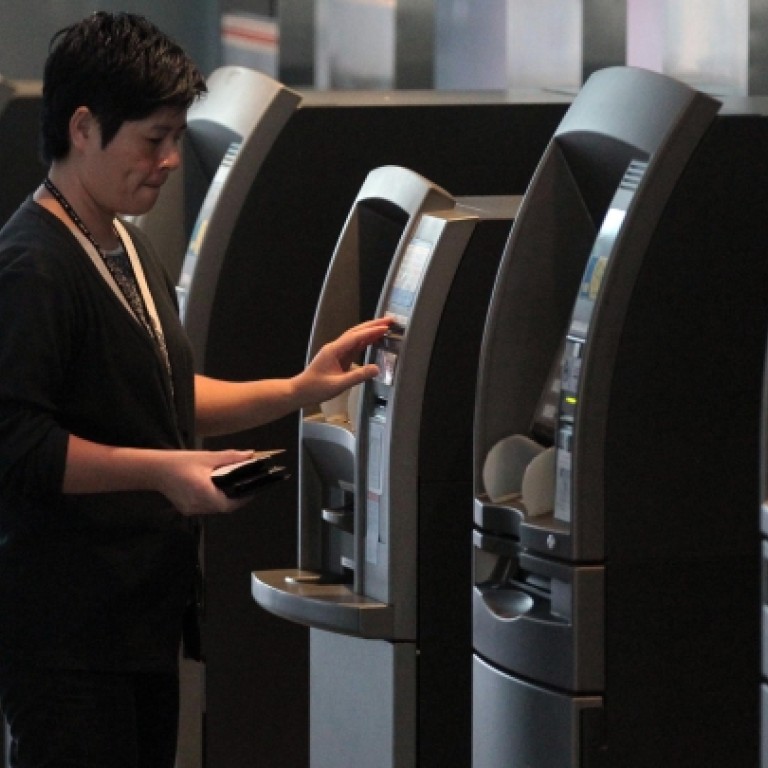
Customers say HSBC has turned the clock back 20 years
We continue to receive complaints about HSBC's new ATM card, which, because it no longer uses the Plus payment network, has left many customers marooned in foreign parts with no access to cash. The HSBC card now uses UnionPay, which is operated by the Bank of China and appears to have limited use outside Asia.
HSBC has apologised but has offered only vague assurances that it is working to fix the problem. It suggests that people link their accounts to their credit cards, although some are finding themselves with large fees as the transactions are charged to the credit card rather than the bank account. Some have recovered these fees from HSBC.
Customers say they were never informed about the changes. But having seen that its customers are getting stranded overseas with no cash, HSBC still has done nothing to warn about the problem and advise on making alternative arrangements as the holiday season gets under way. Maybe HSBC did not relish the prospect of having to write a letter saying in effect, "We have screwed up big time. Your best solution is to use a different bank."
Many of the complaints we have received end with the customers saying this has finally pushed them to leave the bank. HSBC appears to have adopted the ostrich option in the hope that if it holds the position long enough, the problem will go away.
One irate customer writes: "I arrived in Europe for a three-week trip through Holland, Sweden and the UK, standing at Schiphol airport with luggage and a 3-year-old, and €80 (HK$828) in my pocket. You could always travel light on cash because the HSBC ATM card gave access to local currency from any ATM in every country. But no longer. I tried every brand of ATM at Schiphol without luck. 24 hours later and I'm struggling to get the cash needed."
He ends with what has become a familiar refrain. "After 30 years with HSBC, I will now have to find myself another bank." He adds that the bank's service has moved from being one of the best in this respect to one of the worst. "They have turned the clock back 20 years, to when we had to go to the bank and buy foreign currency before travelling, and carrying the cash we needed for the entire trip."
Are you listening, HSBC?
Those that attended the reception thrown by the Austria-based Raiffeisen Bank International to mark the opening of its first branch in Hong Kong came away slightly bemused by the proceedings. The welcome speech was given by Herbert Stepic, who was announced by the master of ceremonies as the chief executive. However, Stepic had resigned from the bank with immediate effect on May 24 for personal reasons. This was after his name showed up in the notorious Offshore Leaks databank. He had held holding companies, one in Hong Kong and the other in the British Virgin Islands for buying three flats in Singapore. Stepic says these funds had been taxed. The matter was investigated and the bank accepted his resignation. A steep fall for the European Banker of the Year in 2006.
Many at the reception were surprised by Stepic's appearance. As one guest said: "Perhaps the bank thought we were all unaware of his problems."
During his speech, Stepic, apparently not appreciating the irony of his situation, stated emphatically that Raiffeisen did not engage in what he described as "hanky-panky" business. Guest speaker Financial Secretary John Tsang Chun-wah added to the sense of unreality by stressing Hong Kong had strong anti-money laundering laws.
You may be surprised to know that the mainland's threat to impose anti-dumping taxes on wine does not bother exporters of fine wines unduly. They are more concerned, according to the magazine , by the way in which the mainland's hygiene department operates. The department has the right to remove two bottles per case to determine if the wine is fit for consumption. This, the magazine says, is a bigger threat for importers of small-volume high-end wines than a tax that may not materialise. Because of a 48 per cent tax on wine, most fine wine destined for the mainland is exported to tax-free Hong Kong, which then makes its way up north, often circumventing customs altogether.

